22 books to read in 2014
A roundup of notable books slated for release in 2014, including new works by David Mitchell, Haruki Murakami, Herman Koch, Rebecca Mead, and more


A free daily email with the biggest news stories of the day – and the best features from TheWeek.com
You are now subscribed
Your newsletter sign-up was successful
There are so many new books to read in a given year that it can be almost impossible to know where to begin — but you shouldn't let the ocean of options stop you from tracking down a few highlights. With so many books slated for release in 2014, where should you begin? Let The Week be your guide:
JANUARY
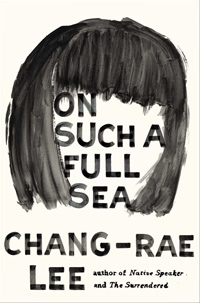
On Such a Full Sea, by Chang-Rae Lee (Jan. 7)
The Week
Escape your echo chamber. Get the facts behind the news, plus analysis from multiple perspectives.

Sign up for The Week's Free Newsletters
From our morning news briefing to a weekly Good News Newsletter, get the best of The Week delivered directly to your inbox.
From our morning news briefing to a weekly Good News Newsletter, get the best of The Week delivered directly to your inbox.
For his fifth book, Korean American novelist Chang-Rae Lee branches out into dystopian fiction. The book follows Fan, a Chinese-American laborer who lives in a class-stratified city called B-Mor (which you probably know better under its current name, Baltimore). When her boyfriend mysteriously disappears, Fan decides to journey into unknown parts of the country to find him. In On Such a Full Sea, Lee uses science-fiction to comment on current political, economic, and environmental problems, painting a dark image of America's possible future.
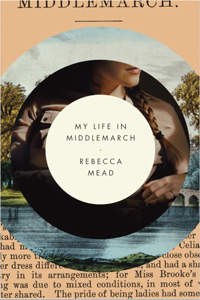
My Life in Middlemarch, by Rebecca Mead (Jan. 28)
The New Yorker's Rebecca Mead pens this intriguing literary hybrid, which doubles as a tribute to George Eliot's Middlemarch and a personal memoir. Mead discovered Middlemarch at a young age and routinely revisited the novel at important junctions in her life, drawing new lessons and insights each time. Though Mead's regard for Eliot is obvious, you don't need to be a Middlemarch fan to appreciate My Life in Middlemarch. If a book has ever truly spoken to you, you'll be able to relate to the way a piece of 19th century literature shapes Mead's perspectives and actions as she moves through life in the 21st century.
Also noteworthy in January: Little Failure, by Gary Shtyengart; Leaving the Sea: Stories, by Ben Marcus; Silence Once Begun, by Jesse Ball; Careless People: Murder, Mayhem, and the Invention of The Great Gatsby, by Sarah Churchwell; Andrew's Brain, by E.L. Doctorow; Still Life with Bread Crumbs: A Novel, by Anna Quindlen; Gods Like Us: On Movie Stardom and Modern Fame, by Ty Burr.
A free daily email with the biggest news stories of the day – and the best features from TheWeek.com
FEBRUARY
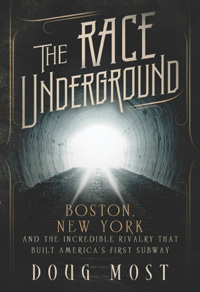
The Race Underground: Boston, New York, and the Incredible Rivalry That Built America's First Subway, by Doug Most (Feb. 4)
At first glance, a history of American public transit might sound like something you'd be forced to read in an engineering class. But the Boston Globe's Doug Most has come at the potentially dry subject from a unique and engaging angle: The story of two brothers — one in New York City and one in Boston — who each dreamed of creating America's first subway system in their respective cities. Most's narrative chronicles tackles the enormous undertaking at every level, from the high-powered political figures at the top to the "sandhogs" who created the tunnels, offering an intriguing top-down look at American transit.
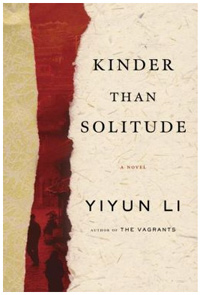
Kinder Than Solitude, by Yiyun Li (Feb 25)
PEN/Hemingway Award-winning author Yiyun Li's latest novel splits its narrative between Ruyu, Moran, and Boyang — a trio of friends linked by a mysterious crime they experienced as children in China. When a young woman was poisoned, it was written off as an accident — but there's a good chance at least one of the friends knows more than they've let on. The novel leaps between the 1990s, when the crime was committed, and the present day, where each of the long-separated friends is coming to terms with what really happened.
Also noteworthy in February: Bark: Stories, by Lorrie Moore; The Good Luck of Right Now, by Matthew Quick; One More Thing: Stories and Other Stories, by B.J. Novak; The UnAmericans, by Molly Antopol.
MARCH
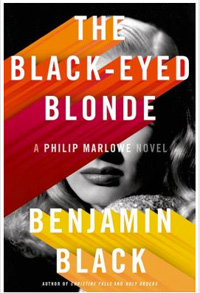
The Black-Eyed Blonde: A Philip Marlowe Novel, by Benjamin Black (Mar. 4)
Legendary mystery author Raymond Chandler left some impossibly big shoes to fill, but his most famous creation — the hard-boiled Los Angeles detective Philip Marlowe — has managed to live on in film, television, and radio for decades after his creator's death. The Black-Eyed Blonde is the first authorized Marlowe mystery since Robert Parker's so-so Perchance to Dream hit shelves in 1991, and the Edward Award-nominated Benjamin Black seems like a solid choice to revive Chandler's famed literary detective for one last case.
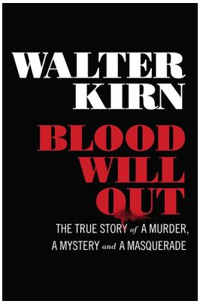
Blood Will Out: The True Story of a Murder, a Mystery, and a Masquerade, by Walter Kirn (Mar. 10)
Up in the Air author Walter Kirn turns to nonfiction to tell the bizarre true story of his 15-year friendship with a man who claimed to be a Rockefeller — and who was, in actuality, a psychopathic con man and murderer. Kirn uses Blood Will Out to document the nature of the friendship, and explore why he was so easily taken in by someone who proved to be so dangerous. Early reviews have compared Kirn's story to Patricia Highsmith's The Talented Mr. Ripley, with one chilling asterisk: This story actually happened.
Also noteworthy in March: Every Day is for the Thief, by Teju Cole; Sleep Donation, by Karen Russell; Boy, Snow, Bird, by Helen Oyeyemi; All Our Names, by Dinaw Mengetsu; Flash Boys, by Michael Lewis.
APRIL
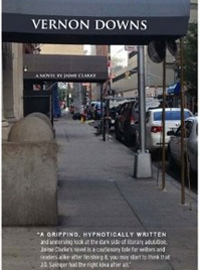
Vernon Downs, by Jaime Clarke (Apr. 15)
Jaime Clarke's Vernon Downs, which has earned early praise from writers like Tom Perrotta and Gary Shteyngart, offers a deliberately meta tale of literary obsession. Between the death of his parents and a bad breakup, the life of aspiring novelist Charlie Martens has been characterized by instability — but when he manages to insinuate himself into the life of his literary idol, Vernon Downs, his happiness and gratitude eventually devolves into obsession.
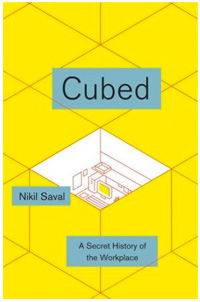
Cubed: A Secret History of the Workplace, by Nikil Saval (Apr. 22)
You probably spend a fair amount of time in your office — in fact, there's a pretty good chance you're reading this article there right now — but how did such a strangely regimented workplace structure become normalized, anyway? Author Nikil Saval dives into the history of the white-collar office, exploring how the accounting offices once looked down on by "real workers" became the business standard — and how the workplace will continue to evolve in the years to come.
Also noteworthy in April: No Place to Hide: Edward Snowden, The NSA, and the U.S. Surveillance State, by Glenn Greenwald; The Revolutions, by Felix Gilman; Casebook, by Mona Simpson; Lovers at the Chameleon Club: Paris, 1932, by Francine Prose; Can't and Won't: Stories, by Lydia Davis; In Paradise, by Peter Matthiessen; Living with a Wild God: A Nonbeliever's Search for the Truth About Everything, by Barbara Ehrenreich.
MAY
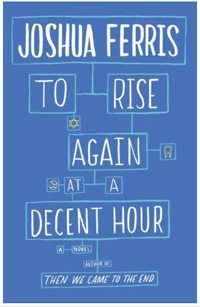
To Rise Again at a Decent Hour, by Joshua Ferris (May 13)
Then We Came to the End author Joshua Ferris returns with a satirical novel about the increasingly important role that technology plays in the way the world understands us. Protagonist Paul O'Rourke is surprised when he discovers that a mysterious identity thief has created both a Facebook page and a Twitter account under his name. But as his other self's online footprint begins to spread, Paul is forced to confront the idea that this other self is better at being Paul O'Rourke than he is.
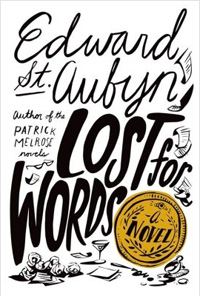
Lost for Words: A Novel, by Edward St. Aubyn (May 20)
After concluding his Patrick Melrose series with 2012's At Last, Edward St. Aubyn aims his satirical lens onto the world of literary puffery with Lost for Words. The novel's sprawling narrative chronicles the mad grab for the (fictional) Elysian Prize for Literature, in which a series of shortlisted authors desperately vie for the press, celebrity, and book sales that come when a book has a little gold stamp affixed to its cover.
Also noteworthy in May: My Struggle: Book Three, by Karl Ove Knausgaard; The Snow Queen, by Michael Cunningham; The 40s: The Story of a Decade, by a series of writers from The New Yorker.
JUNE
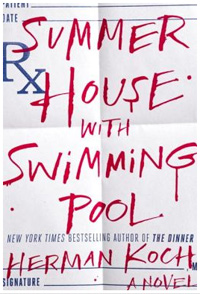
Summer House with Swimming Pool, by Herman Koch (June 3)
Dutch author Herman Koch's cynical The Dinner — which was set entirely at a meal between four repulsive people — polarized critics and readers alike on its way to becoming a bestseller in 2013. Summer House with Swimming Pool promises a similarly grim appraisal of humanity: A doctor who specializes in treating celebrities is forced to explain the death of a famous actor on his operating table less than a year after their families spent an eventful vacation together.
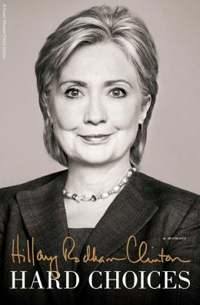
Hard Choices, by Hillary Rodham Clinton (June 10)
Every political reporter in the country is going to be poring over Hillary Clinton's latest book for hints about a possible presidential bid in 2016. But whatever the future of her political career, Hard Choices should be an interesting read in its own right, offering new insights into her four-year tenure as secretary of State.
Also noteworthy in June:
Mr. Mercedes, by Stephen King; The Silkworm, by Robert Galbraith; Your Fathers, Where Are They? And the Prophets, Do They Live Forever? by Dave Eggers; Poking a Dead Frog: Conversations with Today's Top Comedy Writers, by Mike Sacks; My Salinger Year, by Joanna Rakoff; Brutal Youth, by Anthony Breznican; The Book of Unknown Americans, by Cristina Henriquez; The Most Dangerous Book: the Battle for James Joyce's Ulysses, by Kevin Birmingham.
JULY
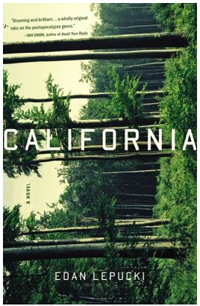
California: A Novel, by Edan Lepucki (July 8)
Edan Lepucki's debut novel follows Cal and Frida, a couple that flees the wreckage of a post-apocalyptic Los Angeles for a solitary life in the wilderness. When Frida becomes pregnant, they reluctantly rejoin society and begin what they assume will be a safer life in a heavily guarded settlement — only to discover that society might be more dangerous after all.
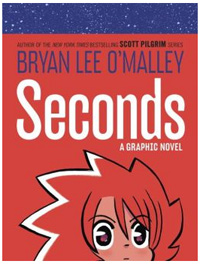
Seconds, by Bryan Lee O'Malley (July 15)
We don't know much about Bryan Lee O'Malley's upcoming graphic novel Seconds yet — but given that it's O'Malley first full-length project in a decade that's not called Scott Pilgrim, it's easy to be excited anyway. O'Malley has revealed that the "funny and weird and kind of big and crazy" story will follows a young woman named Katie who works in a restaurant called Seconds, which exists in a "fairy tale version of reality."
Also noteworthy in July: Nobody is Ever Missing: A Novel, by Catherine Lacey; Last Stories and Other Stories, by William T. Vollmann; The Hundred-Year House, by Rebecca Makkai; Shadows in the Vineyard: The True Story of a Plot to Poison the World's Greatest Wine, by Maximillian Potter; The Skeleton Crew: How Amateur Sleuths are Solving America's Coldest Cases, by Deborah Halber; The Victorian City: Everyday Life in Dickens' London, by Judith Flanders.
AUGUST
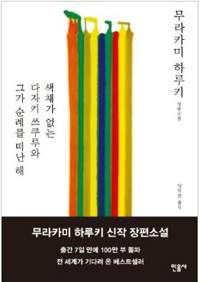
Colorless Tsukuru Tazaki and his Years of Pilgrimage, by Haruki Murakami (Aug. 12)
Murakami's latest novel is already a smash success in Japan, where it debuted in April 2013. Since then, translator Philip Gabriel — who was also responsible for the English-language versions of Murakami books like Kafka on the Shore and South of the Border, West of the Sun — has been working away on the novel, which follows a man who reflects on the pain of a rejection from many years earlier.
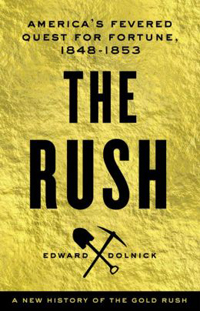
The Rush: America's Fevered Quest For Fortune, 1848-1855, by Edward Dolnick (Aug. 12)
Edward Dolnick specializes in digging up intriguing historical nuggets, which makes his latest subject a particularly apt one: the California Gold Rush that briefly swept the country in the mid-1850s. In The Rush, Dolnick aims to document what he describes as "the greatest treasure hunt the world has ever seen," which constituted the last gasp of American exploration, as thousands of people quite their jobs and traveled west in hopes of striking it rich.
Also noteworthy in August: The Magician's Land, by Lev Grossman; Arctic Summer, by Damon Galgut; Confessions, by Kanae Minato; Before, During, After, by Richard Bausch.
SEPTEMBER
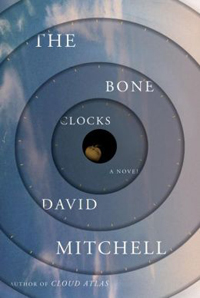
The Bone Clocks, by David Mitchell (Sept. 2)
Cloud Atlas author David Mitchell returns with another sprawling novel, this one chronicling the life of protagonist Holly Sykes, who runs away from home in 1984 and spends the subsequent decades hopping around places like Switzerland and Ireland. The novel traces her story all the way to 2044, as the world's climate nears collapse.
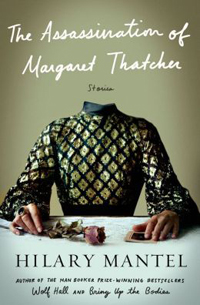
The Assassination of Margaret Thatcher: Stories, by Hilary Mantel (Sept. 30)
Hilary Mantel's most recent novels, Wolf Hall and Bring Up the Bodies, have each won the Man Booker Prize — so any new book by Mantel is justly deemed a literary event. But given her recent emphasis on England's centuries-old history, it's particularly exciting that this short story collection promises to focus on "what modern England has become."
Also noteworthy in September: Consumed: A Novel, by David Cronenberg; A Load of Hooey, by Bob Odenkirk; The Zone of Interest: A Novel, by Martin Amis; So We Read On: How The Great Gatsby Came to Be and Why It Endures, by Maureen Corrigan; Broken Monsters, by Lauren Beukes; Wolf in White Van, by John Darnielle.
OCTOBER
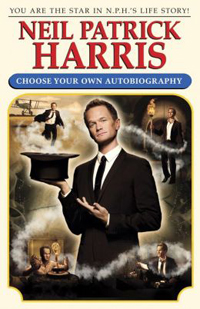
Book stores across the country are littered with unsold copies of underwhelming autobiographies by overexposed celebrities — but Neil Patrick Harris' openly silly take on the genre sounds like one that might actually be worth reading. Choose Your Own Autobiography is the celeb-lit equivalent of the Choose Your Own Adventure series, allowing you to chart the life path you want NPH to take. "You will decide whether to try out for Doogie Howser, M.D. You will decide whether to spend years struggling with your sexuality. You will decide what kind of caviar you want to eat on board Elton John’s yacht," promises the book. Who could turn that offer down?
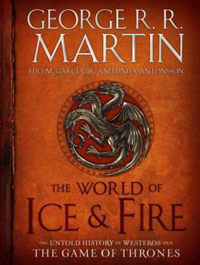
No, it's not the next installment in George R.R. Martin's insanely popular A Song of Ice and Fire series (which forms the basis for HBO's Game of Thrones). But for anyone who wants to spend a little more time in Westeros, A World of Ice and Fire promises the next best thing: an exhaustive history of the fantasy realm, offering unique and detailed insights into centuries of events that determined the futures of the Starks, the Lannisters, and dozens of Westeros' other storied families.
Also noteworthy in October: The China Mirage: The Hidden History of American Disaster in Asia, by James Bradley; The Boy Who Drew Monsters, by Keith Donohue.
NOVEMBER
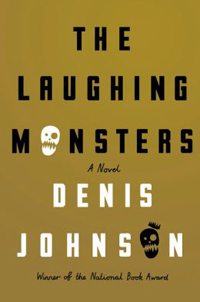
Denis Johnson, whose ambitious 2007 novel Tree of Smoke won the National Book Award, is back with a similarly sprawling novel about three friends who travel together to the Uganda-Congo border. Each of them is keeping a secret from the others — and as their ill-fated trip leads to kidnapping and other acts of violence, they're forced to confront the new versions of themselves that begin to emerge.
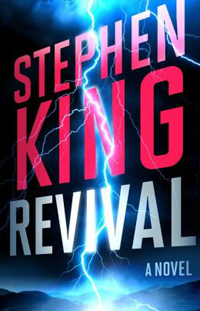
The prolific horror guru's upcoming Revival sounds like a fascinating distillation of the themes that have often characterized his novels: faith, sin, obsession, and the bonds that warp and shape us over the course of our lives. The novel begins, of course, in a small-town New England, where a charismatic minister holds sway over virtually everyone he meets. But an unexpected tragedy puts the minister on a different path, and he develops a connection to one of the boys in the town that has great implications for both of them in the decades to come.
Also noteworthy in November: Science…For Her!, by Megan Amram; Brief Encounters: Conversations, Magic Moments, and Assorted Hijinks, by Dick Cavett.
**Photos courtesy of Barnes & Noble and Amazon.com**
Scott Meslow is the entertainment editor for TheWeek.com. He has written about film and television at publications including The Atlantic, POLITICO Magazine, and Vulture.
-
 The Week Unwrapped: Have televised confessions quelled protests in Iran?
The Week Unwrapped: Have televised confessions quelled protests in Iran?Podcast Plus, why has Elon Musk turned from Mars to the Moon? And will the BBC prove to be a puzzles champ?
-
 The week’s best photos
The week’s best photosIn Pictures An Andean god, a rogue squirrel, and more
-
 AI surgical tools might be injuring patients
AI surgical tools might be injuring patientsUnder the Radar More than 1,300 AI-assisted medical devices have FDA approval
